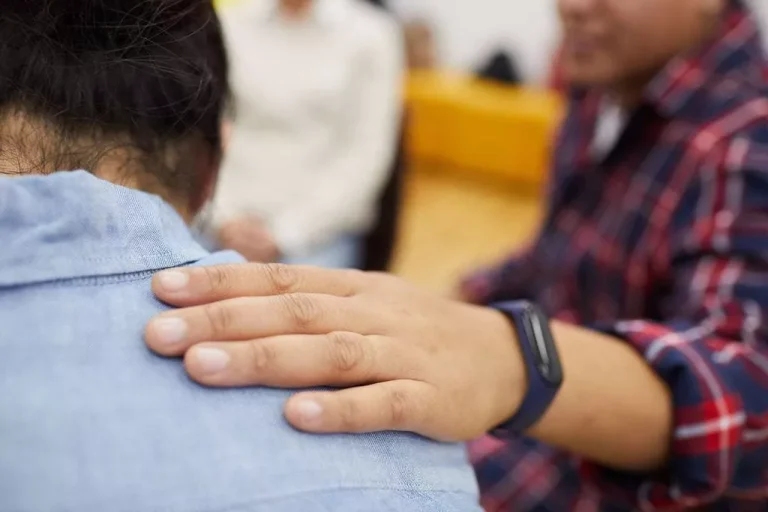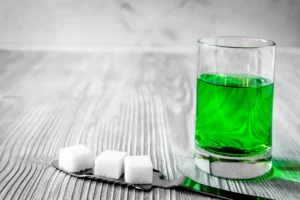How to Stop Binge Drinking: 12 Tips for How to Quit


According to the 2019 National Survey on Drug Use and Health, nearly 26 percent of adults reported excessive drinking in the past month. Behavioral treatment programs are helpful for people who want to quit drinking. These programs involve working with a team of mental health professionals in a group and individual setting. Tap into your social network to help support you through alcohol withdrawal.
The three basic steps of urge surfing:


Alcohol addiction treatment offers multiple treatment options and treatment settings that are based on your unique circumstances and recovery goals. You might find it helpful to choose an accountability partner who has also struggled with binge drinking. https://ecosoberhouse.com/ This can be one of your in-person friends, or even someone you met through an online support group. This can add an extra layer of understanding and honesty that you might not get with a partner who hasn’t ever wanted to change their drinking habits.
Sample Alcohol Tapering Schedule
Crystal Raypole has previously worked as a writer and editor for GoodTherapy. Her fields of interest include Asian languages and literature, Japanese translation, cooking, natural sciences, sex positivity, and mental health. In particular, she’s committed to helping decrease stigma around mental health issues. Research shows that most people believe that drinking can make them feel better. However, when alcohol makes up part of your typical routine, drinking can become something of an automatic response, especially when you feel stressed or overwhelmed.
CAR-T immunotherapy for prostate cancer?
- It’s important to acknowledge your ambivalence about stopping drinking.
- Someone who binge drinks may experience impaired judgment, nausea, vomiting, and even unconsciousness.
- You might run into obstacles along the way that tempt you to drink.
- For example, you can do this by not storing it in your house.
While you’re getting a handle on your drinking behavior, you may need to avoid certain bars, parties, or other activities you know will center around excessive drinking. You may need to avoid spending time with specific people or groups who focus on alcohol for fun. It’s possible you may need to permanently avoid these potential triggers. If you do choose to go to a bar or party, limit yourself to one drink, or less, an hour, and have a non-alcoholic drink in between those with alcohol. Consistent binge drinking over a long period of time can lead to a variety of issues with your physical health. It may increase your risk of liver damage, various types of cancer, high blood pressure and even brain damage.
Alcohol abuse can cause or worsen symptoms of depression, anxiety, and sleep disorders. You might experience adverse effects on your mood while you’re intoxicated and even after you sober up. Alcohol abuse and mood disorders can even form a dangerous cycle. The lack of sleep worsens your depressive systems, so you turn to alcohol again.
As a depressant, alcohol can lower your mood and make negative emotions worse. Drinking can lead to hangxiety, which is mix of a hangover and anxiety. Quit binge drinking with the help of a professional if you are worried that you are developing an alcohol addiction or have already developed an alcohol addiction. In fact, research shows that young binge drinkers have about the same decision-making problems as people with a severe AUD.


You may begin to binge drink more often, the days you abstain between sessions becoming fewer. If you are thinking about quitting drinking, talk to your healthcare provider. Medical supervision, behavioral health treatment, and mutual-aid groups can help you through alcohol withdrawal and stay stopped. Alcohol withdrawal symptoms usually start within hours after you stop drinking, peak in a day or two, and improve within five days.


While you can’t control how other adults handle alcohol, if you’re the parent of a teen who binges, you’ll want to take action. Alcohol use can have life-long effects on developing brains and bodies. Teens who drink are also more likely to struggle with school, use other risky substances, or experience alcohol poisoning. Alcohol abuse can affect brain structure development, so people who start binge drinking as teens or young adults may experience issues with learning and concentrating. Self-reflection and intention setting are great tools to identify your path forward if you want to stop binge drinking and moderate your alcohol consumption or get sober. For many people, peer support and outside accountability are key tools in their treatment toolkit.
You might wake up with questions like, “Did I do something stupid to endanger my loved ones? ” These lapses in memory only add to the overall hangover and sense of dread you experience the next how to stop binge drinking day. A modern, online approach allows you to receive guidance and support whenever you need it, and on your own schedule. “Many people don’t know that alcohol is a carcinogen,” said Pettigrew.


That implies you’ll need a lot of patience to help your loved one get better. While it’s vital to be upfront and honest about your worries, keep in mind that you can’t make someone quit drinking. Your loved one’s drinking is unlikely to improve on its own; in fact, it’s more likely to worsen unless you intervene. This article discusses how to deal with and help a binge drinker. The Alcohol Use Disorder Identification Test is used by medical professionals to assess their patient’s risk level for alcohol dependence.
No Comments